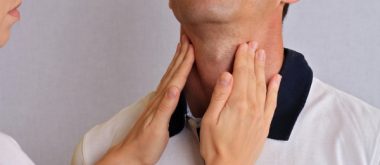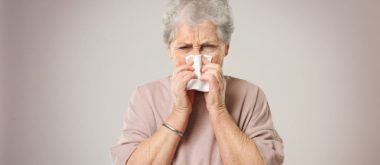Overcoming hormone changes as one ages could prove critical to keeping intimacy alive. Hormonal changes are common as individuals age. Fortunately, however, some actions might help boost systemic concentrations of these substances and help affected individuals overcome such sexual issues.
Causes of Age-Related Hormonal Decline
As both men and women grow older, their bodies produce diminished concentrations of hormones, which are chemicals that travel throughout the body and aid various systemic tracts in performing vital functions.
Hormonal decline can be pronounced in both the male and female reproductive systems.
Women in their late forties or early fifties typically experience a life stage known as menopause. During this period, reproductive organs such as the ovaries gradually produce reduced concentrations of sexual hormones, like estrogen and progesterone.
As hormonal synthesis and secretion diminish, women witness numerous untoward symptoms, including hot flashes, increased sweating, insomnia, skin maladies, headaches and mood swings. Additionally, affected individuals often experience disturbing sexual occurrences, such as decreased libido.
Men are not immune to hormonal decline. In fact, they often begin witnessing a small but gradual systemic decline in the production of pertinent reproductive and sexual hormones, such as testosterone, in their late twenties. In certain instances, aged males experience what some medical professionals categorize as andropause or “male menopause.”
Andropause might elicit numerous bothersome physical manifestations, such as weight gain, bodily fat accumulation, diminished muscle mass, fatigue, bone weakness and mood changes. Additionally, like in menopause, pronounced sexual issues, including a diminished sex drive, sperm quantity and quality issues and erectile dysfunction might result.
Sexual struggles might not only be a difficult and challenging personal issue but may also lead to intimacy issues between partners. If left unchecked, intimacy issues could precipitate the eventual breakdown and termination of long-standing marriages and relationships.
Overcoming Hormone Changes

Address Mental Challenges
In certain instances, age-related hormonal decline precipitates mental issues, such as anxiety and depression. These issues could significantly contribute to diminished libido, so stabilizing these conditions might improve one’s sex drive.
Use Lubrication
One uncomfortable menopause symptom is vaginal dryness, but it is often overlooked. This occurrence can render intercourse unpleasant and, in certain cases, painful. When sex becomes painful, women might choose to avoid the activity altogether. Luckily, this untoward problem might be conquered through the application of vaginal moisturizers and other wetness-inducing products.
Natural Hormone-Boosting Techniques
Another method of potentially overcoming hormone changes associated with aging includes employing natural hormone-boosting techniques:
Exercise
Research has concluded that routine physical activity could prove critical to stimulating bodily production of reproductive and sexual hormones.
Consume a Healthy Diet
Nutritionists suggest a balanced diet rife with vitamins and nutrients could prove vital to maintaining as normal a hormonal balance as possible.
Obtain Enough Sleep
Sleep proves crucial in preventing an increased systemic production of chemicals known as stress hormones. Excessive quantities of substances such as cortisol and adrenaline can further diminish internal levels of reproductive hormones. Most medical professionals recommend the average adult receive anywhere from seven to nine hours per evening.
Reduce Stress
Chronic exposure to stress and tension also increases one’s risk of experiencing high systemic levels of stress hormones. Completely avoiding stress is virtually impossible. However, eliminating unnecessary sources of it and identifying productive release outlets often prove vital to overcoming hormone changes.
Hormone-Replacement Therapy
When hormonal concentrations drop unusually precipitously, hormone-replacement therapy may be a viable therapeutic protocol. Though this method might alleviate sexual symptoms, it comes with certain health risks. Therefore, a prospective recipient should receive a thorough medical evaluation and discuss potential pros and cons with his or her doctor before beginning a treatment program.





